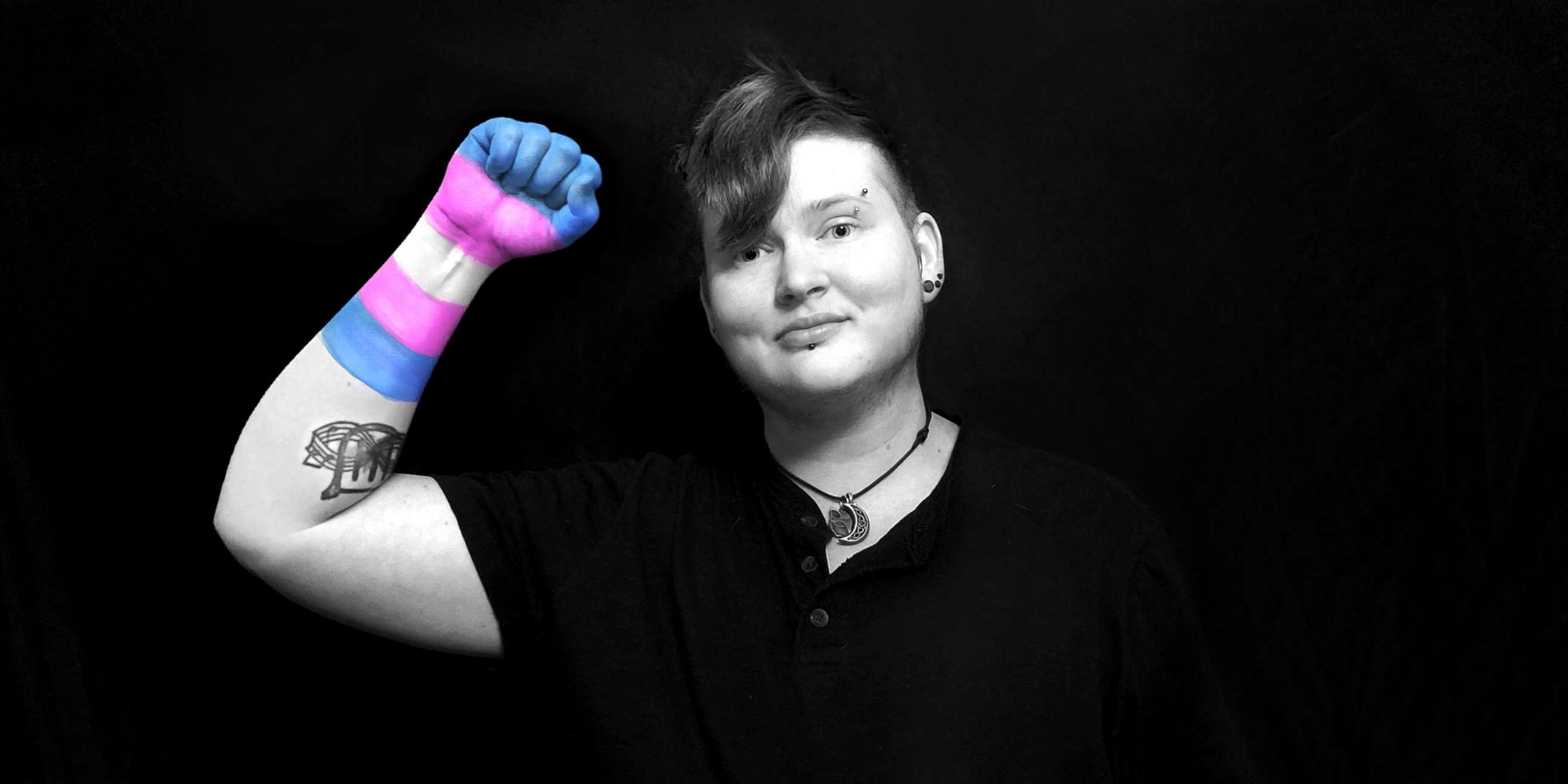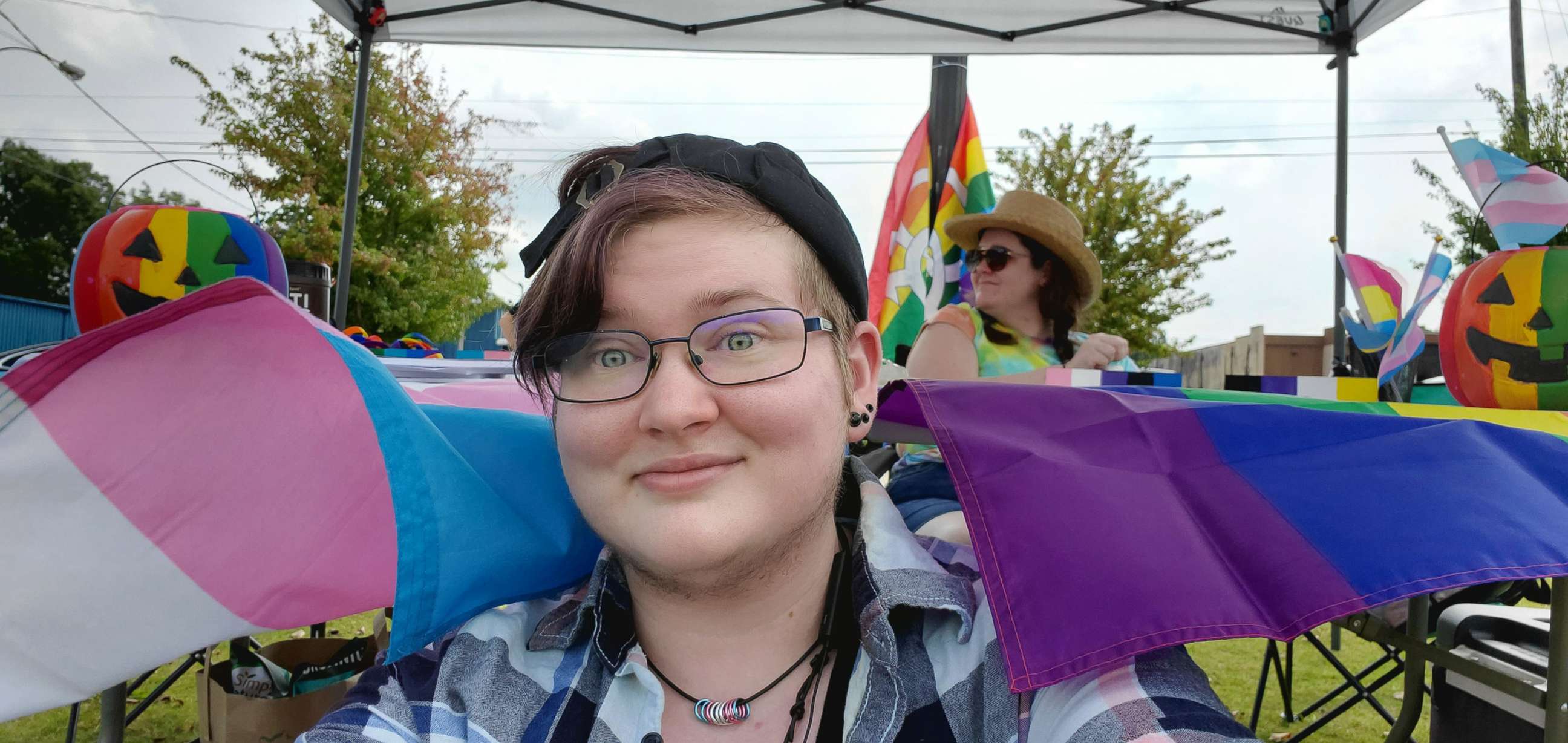Trans support groups fight to save lives amid anti-LGBTQ legislation
More than 300 anti-LGBTQ bills have been seen across the country this year.
Without a strong support system, navigating one's identity can be a little tricky.
Máni Blunt, a trans support group leader, said he didn't have the words to describe what he was feeling when he was growing up in Alabama -- he knew he was different and didn't "fit in with girls," but couldn't grasp what exactly he was feeling until he was about 23 years old.
"I wish that something like this had been available when I was younger," said Blunt about TransFamily Support Services (TFSS), the support group organization he belongs to.
"Thanks to organizations like TransFamily, [young people are] getting that verbiage. They're getting that support and a place where they can be themselves as authentically as possible and they can try on different labels and different pronouns."
Blunt joined TransFamily Support Services as a Youth Support Group in 2021 to help foster a place of learning and acceptance that his younger self could have used.
Kathie Moehlig, the founder and executive director, was inspired to create this group after her son started openly identifying as a boy at the age of 11.
She said her doctors weren't willing to help her child transition, and as she continued to advocate for her son's needs, other families sought her out for help.

That's how TFSS began. The groups, now spread across the country, meet virtually and host mindfulness workshops, group discussions, and community building exercises.
"The world looked very different a decade ago than it does today," Moehlig said.
Now, more than seven years later, they've worked with 2,400 trans individuals nationwide.
As the nation faces a wave of anti-LGBTQ legislation -- with some states attempting to frame gender-affirming youth care as "child abuse" and others banning LGBTQ content from some classrooms -- these groups are as important as ever.
In Alabama, where Blunt now serves as a state programs manager, transgender rights have been particularly targeted in local legislation.
S.B. 184, the Vulnerable Child Protection Act in Alabama, states that anyone who provides gender-affirming care to anyone under 19 could be convicted of a felony and face up to 10 years in prison and a $15,000 fine.
"A lot of our families are very much in fight mode," said Blunt. "As they're watching how things have developed and seeing the ways that they can get involved, they're like, 'I'm not taking this for my family. I'm also doing this for all of the other families out there because our resources were already limited and now you're taking them away. We're not going to stand for that.'"
Though the bill and others like it have been blocked across the country, the anxiety being felt throughout the community remains.

Support groups like TFSS are trying to save lives.
"My son was suicidal, and having this information [about his trans identity] was the piece that was going to keep him alive," said Moehlig. "I knew that celebrating who he was, and his gender and his authenticity was the piece that was going to keep him alive. So we leaned into that celebration. We threw a party the day we changed the name and pronouns."
According to the National Alliance on Mental Illness (NAMI), LGBTQ community members are at a higher risk for experiencing mental health conditions, including depression, anxiety disorders and suicidal ideations.
The organization also found that discrimination, prejudice, denial of civil and human rights and family rejection are oft the source behind this disparity.
However, inclusion and support can make a big difference in the mental health of the transgender community.
Research has shown that gender affirmation and inclusive policies can reduce depression and anxiety symptoms for trans and nonbinary people.
So queer people are looking to support groups to find community, joy and safety among the ever-growing LGBTQ population in the U.S.
Some 5.6% of U.S. adults now identify as LGBTQ, a 2021 Gallup poll found. It's a record that's up by more than 1 percentage point from 2017.
"One of our kiddos who I met in the middle school group, and then they transitioned into the high school group, they are generally nonverbal," Blunt said. "But at the trans day of visibility event, they actually got up at the microphone to express their joy and the support that they've had from their family. And like, I was trying not to cry."
And for parents, support groups give them the space to learn more about the LGBTQ community and learn the best ways to support and understand their child.
"We, as an organization, believe that the trans person isn't really transitioning. They're just aligning themselves with who they know themselves to be," Moehlig said. "It's the people around them that are transitioning: parents, siblings, grandparents."
And though fighting for LGBTQ rights and advocating for oneself can be exhausting, Blunt says, many find solace in the joy and beauty of being comfortable and confident in one's identity.
Moehlig agrees.
"The joy of watching a youth, as I've watched 1000s of them, come into this place of knowing themselves and getting to a space where they're comfortable telling their parents about it … and then watching the parents get their heads wrapped around it, leaning into the best way to support and affirm this child -- That is unconditional love at all different level," said Moehlig.




